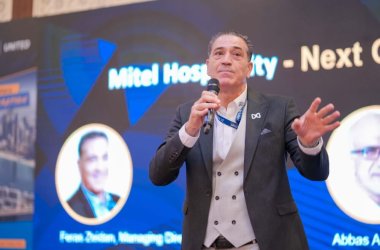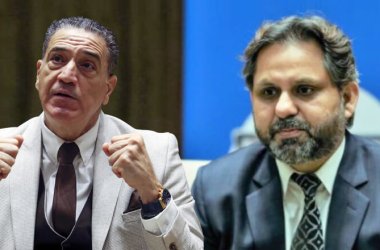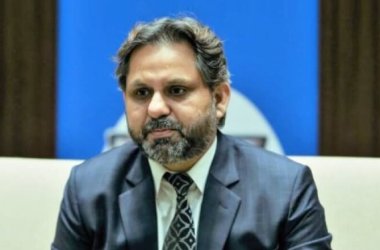Martin Bitzinger, Senior Vice President Product Management & Marketing at Mitel explains how Mitel is adapting to the ever-changing tech landscape by enhancing hospitality products, strengthening government communication, and differentiating itself in the competitive marketplace.

How is Mitel planning to advance its hospitality products and evolve its next-generation solutions in the ever-changing tech landscape?
This year we have pivoted our strategy towards a vertical focused strategy and hospitality is among our key verticals. For us hospitality does not only include hotels but also a mix of construction, tourism & cruise ships for instance. For this industry, we’re enhancing our core products to add hospitality specific features to simplify the deployment of our solutions with fewer components & integrated with back-of-house applications. In the past, you always needed a lot of add-on software components, but we are now integrating these functionalities into our platforms.
In addition to that, we’re really focusing on the contact sector use cases, the customer service angles, where artificial intelligence plays a key role in enhancing that experience. We do that with Alliances, but also through innovations in our portfolio. The focus there is to improve the guest experience and the guest service, at any point of the customer journey – from a reservation to facilitating check-in and service requests to mobility, safety & security. There are a lot of interesting technologies on the AI front that really help automate tasks. That’s a key focus area for us.
What are Mitel’s strategies for ensuring secure government communication and seamless integration with large command control systems in today’s cybersecurity landscape?
Government is another major vertical for Mitel and we’re focused on a few key areas. One of them is compliance, which is closely tied to security, including data sovereignty and the whole infrastructure sovereignty. Our products are ideally suited to fulfil these requirements. With the acquisition of Unify, we’re also gaining a lot of services capabilities which are ideal for managing those types of larger customers where we need to maintain the infrastructure, provide security certifications and compliances.
On the product front, we’re bringing enhancements in the fields of mass notification or alerting, which is critical for a lot of government entities, including education. Overall, security is a real focus to make our solutions highly secure, both from a product and deployment perspective to be highly resilient, which is critical for many of the key government entities.
Could you provide insights into the roadmap of Mitel’s Hospitality multitenant cloud services, and how they plan to meet the evolving needs of the hospitality industry?
On the hospitality front, there are two things. Hotels mostly require part of their communication infrastructure to be on-premise to connect devices like speakers, lobby phones and phones for the rooms. That’s typically part of our core platform solution. Then there’s also the software aspect, like contact centers that we can deliver from the in-country cloud. With this combination, we have a very flexible offering.
The difference with many of our competitors, that are purely focused on multi-tenant cloud-based offers, is our ability to provide both options – on-premise and/or in the local cloud. Some organisations have different requirements. For example, we have a lot of cruise ships among our hospitality customers. Due to their nature, a cloud-based solution is not a very good fit because of the lack of a stable and reliable internet connection. The whole solution needs to be on the ship.
But for normal properties, we’re able to provide both on-premise and in-country cloud solutions where many of our competitors offering only multi-tenant services would need to add third party products and solutions. This means that they have to rely on a system integrator to integrate everything together, whereas we can do it all and we can basically provide a complete solution to our resellers that can just go and install it in the properties.
In light of Mitel’s history and recent acquisition of Unify/Atos, how does the company intend to compete with industry players like Granstream and NEC, and what sets Mitel apart in this competitive landscape?
Grandstream is more of a hardware player. They tend to have a much narrower solution portfolio than we do. Especially in the contact centre area, end-to-end security, cloud integration, larger enterprise platforms and end-to-end UC solutions. We have a much stronger portfolio, including devices too. So, the completeness of portfolio as well as the size and footprint of our solutions make the difference.
NEC is a head-to-head competitor. We differentiate ourselves through a much more advanced portfolio in terms of software, in-country hosted cloud and hybrid cloud capabilities where we can mix physical and virtual deployments on the customer premise. Our contact centres are also a differentiator. NEC is a very viable player, especially in the hospitality space. They have those hardware-based offers and they’re basically taking advantage of that. Same as us against some of the competitors in the hospitality space.





